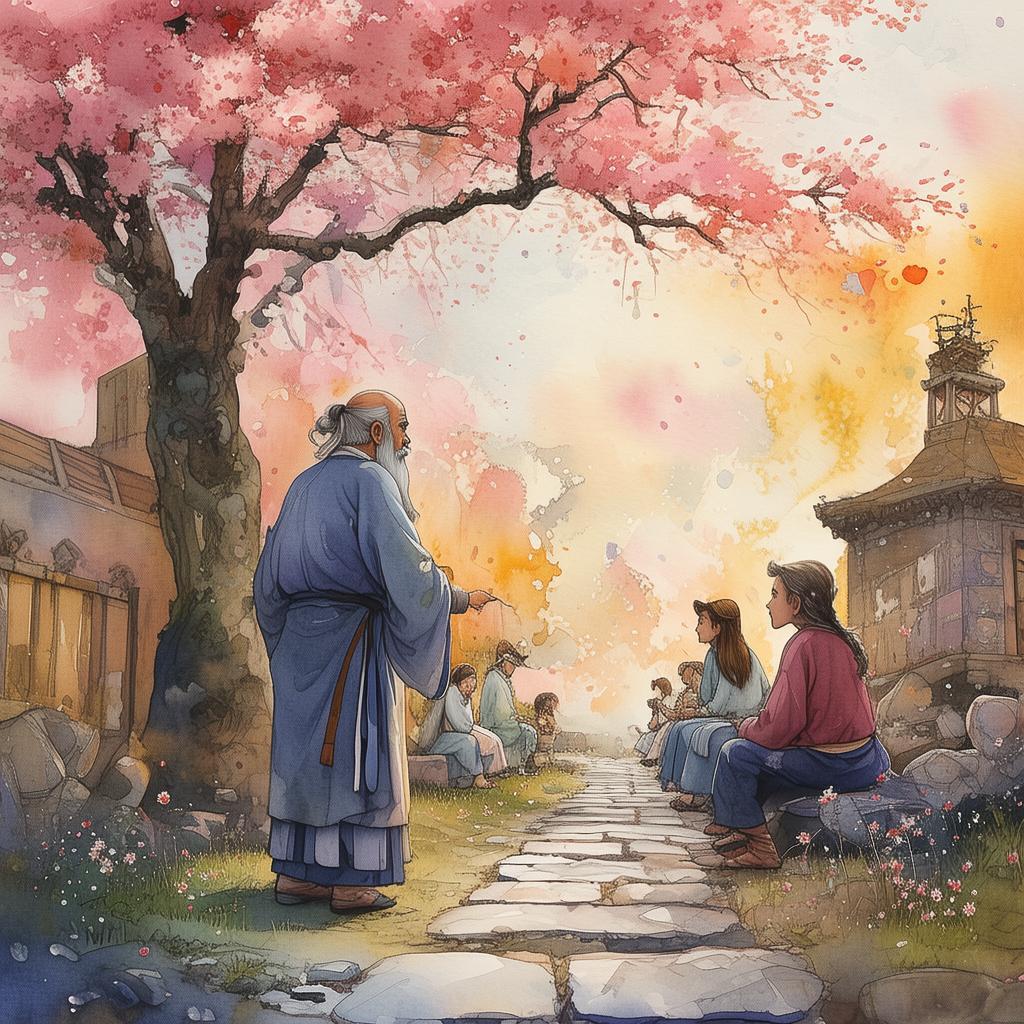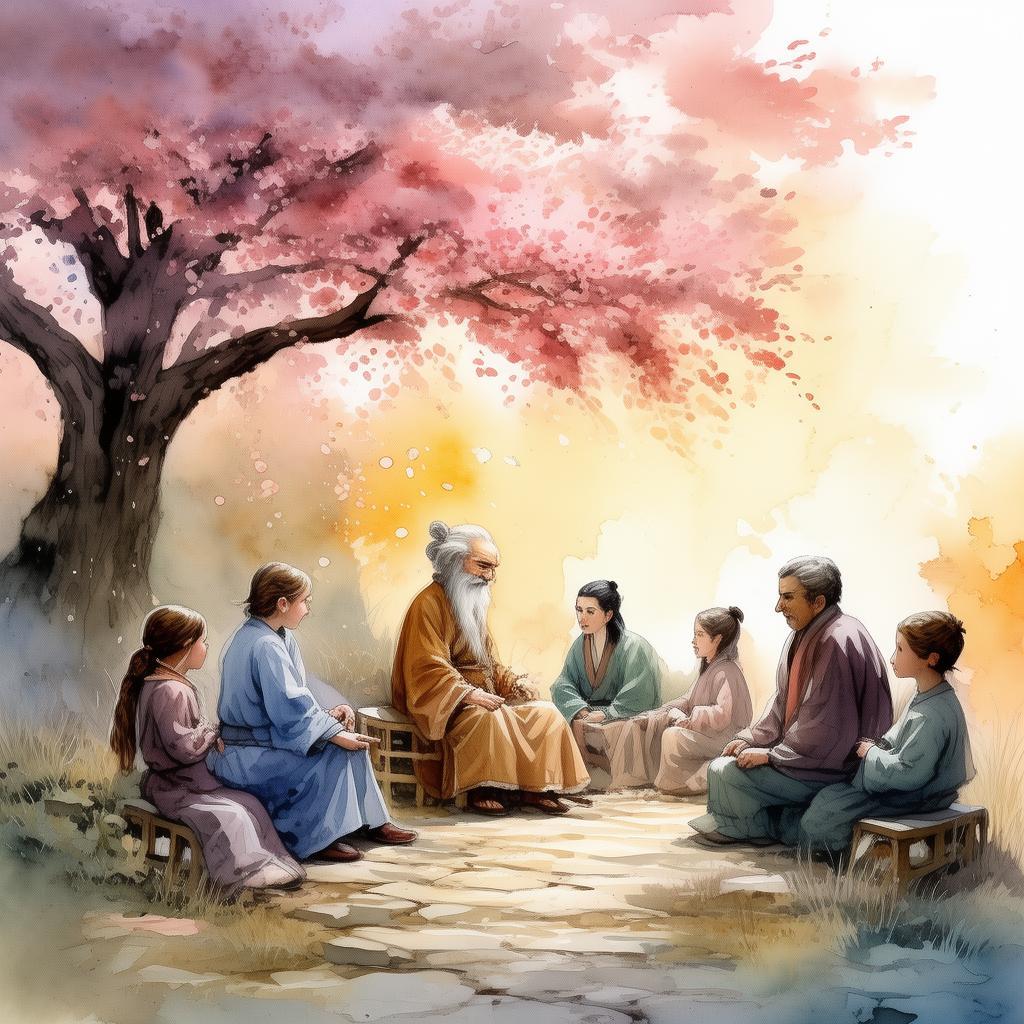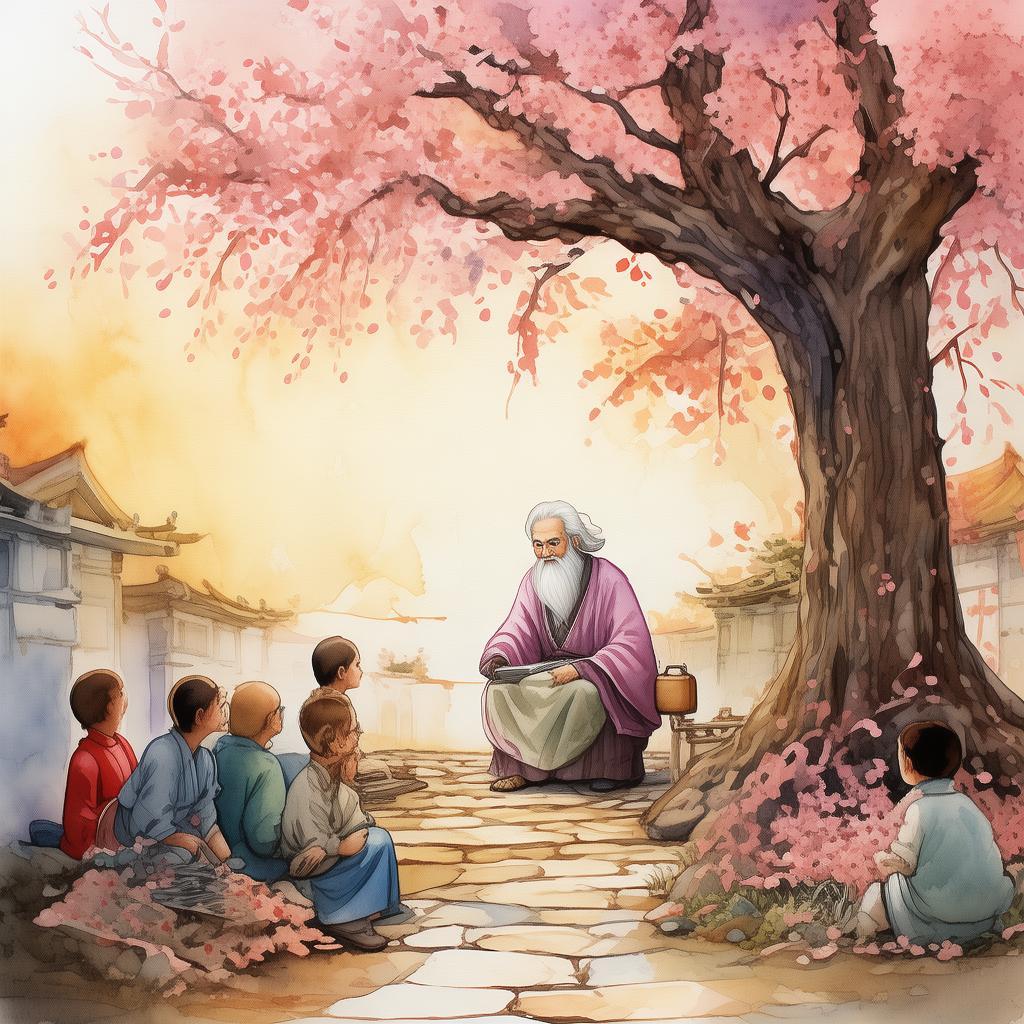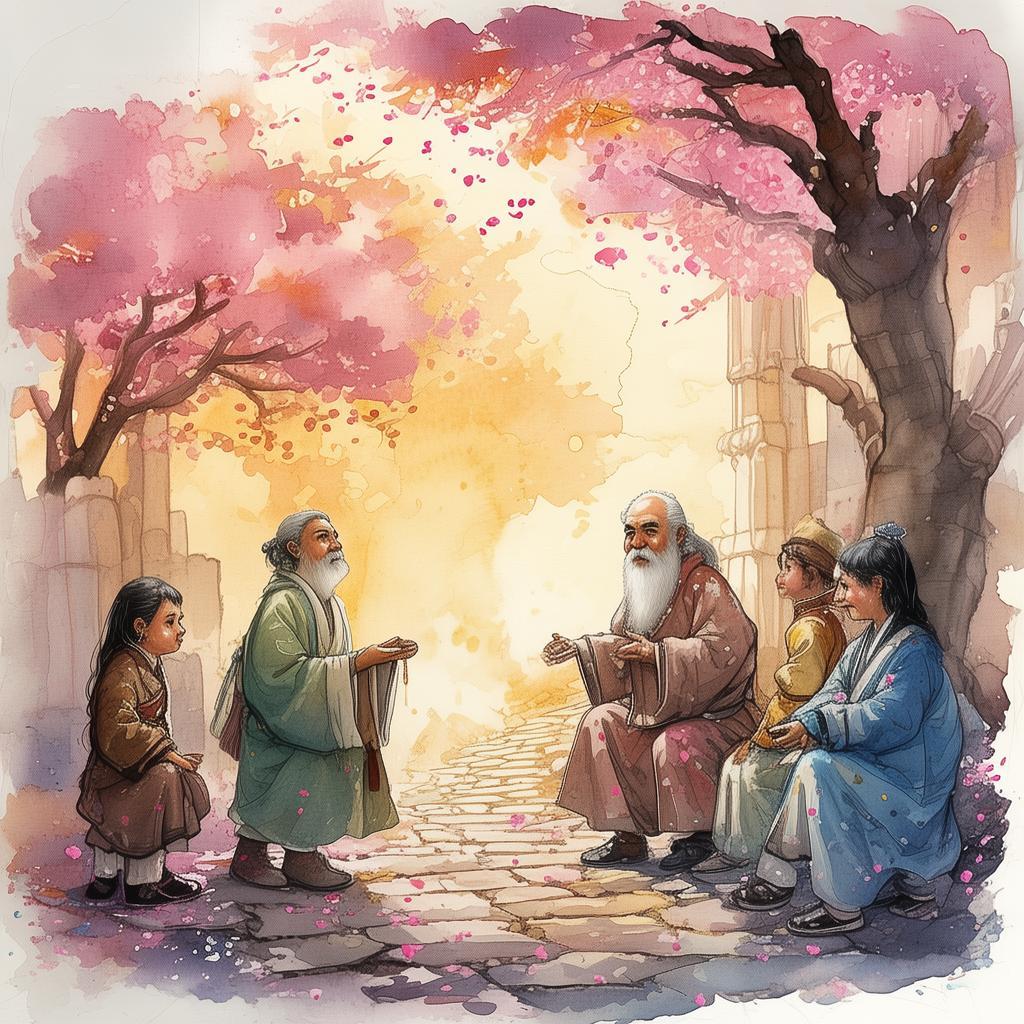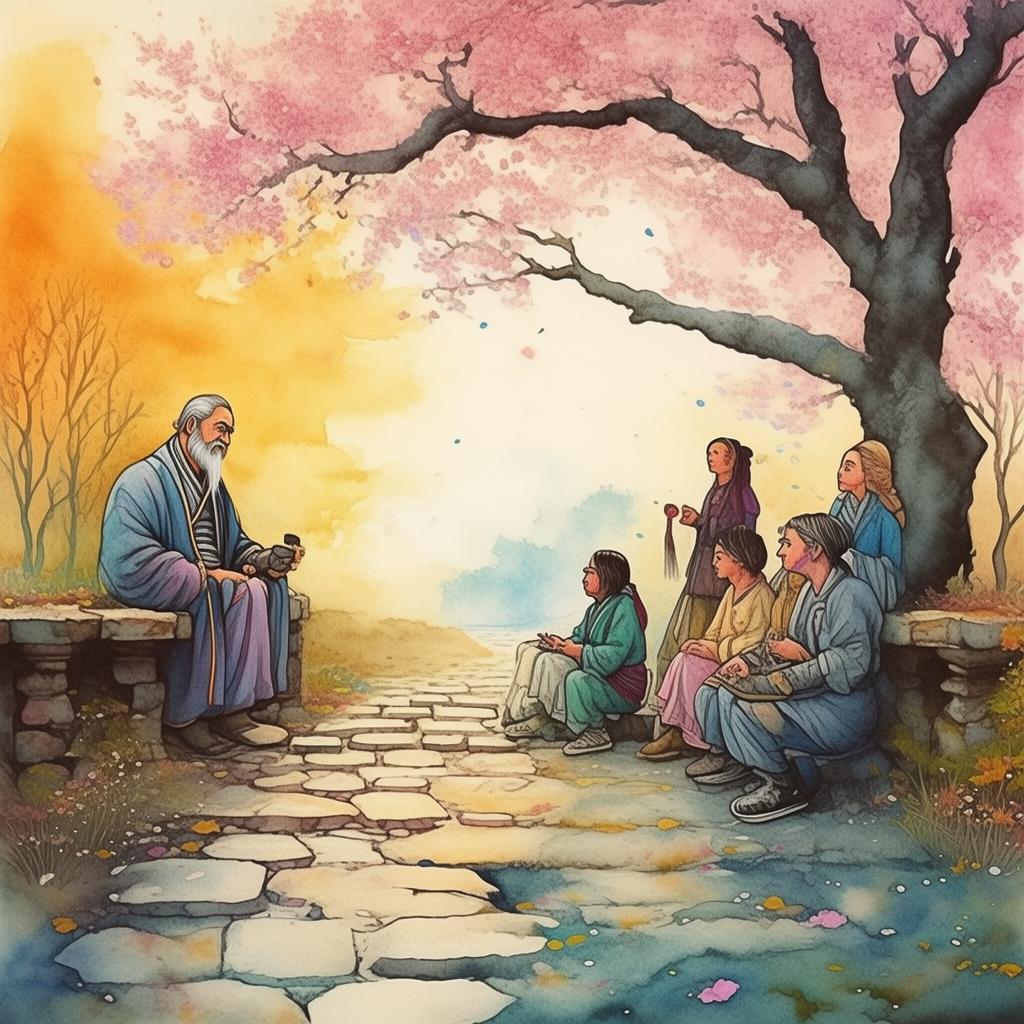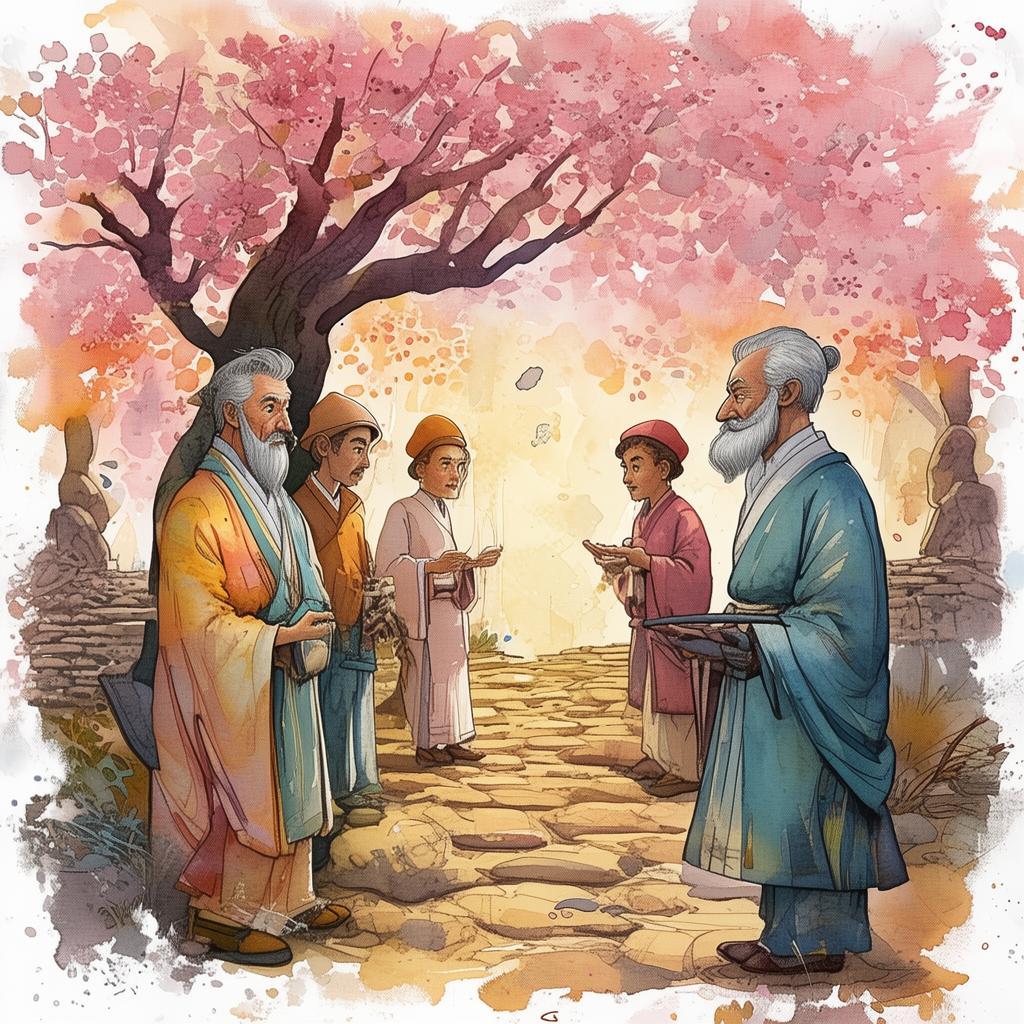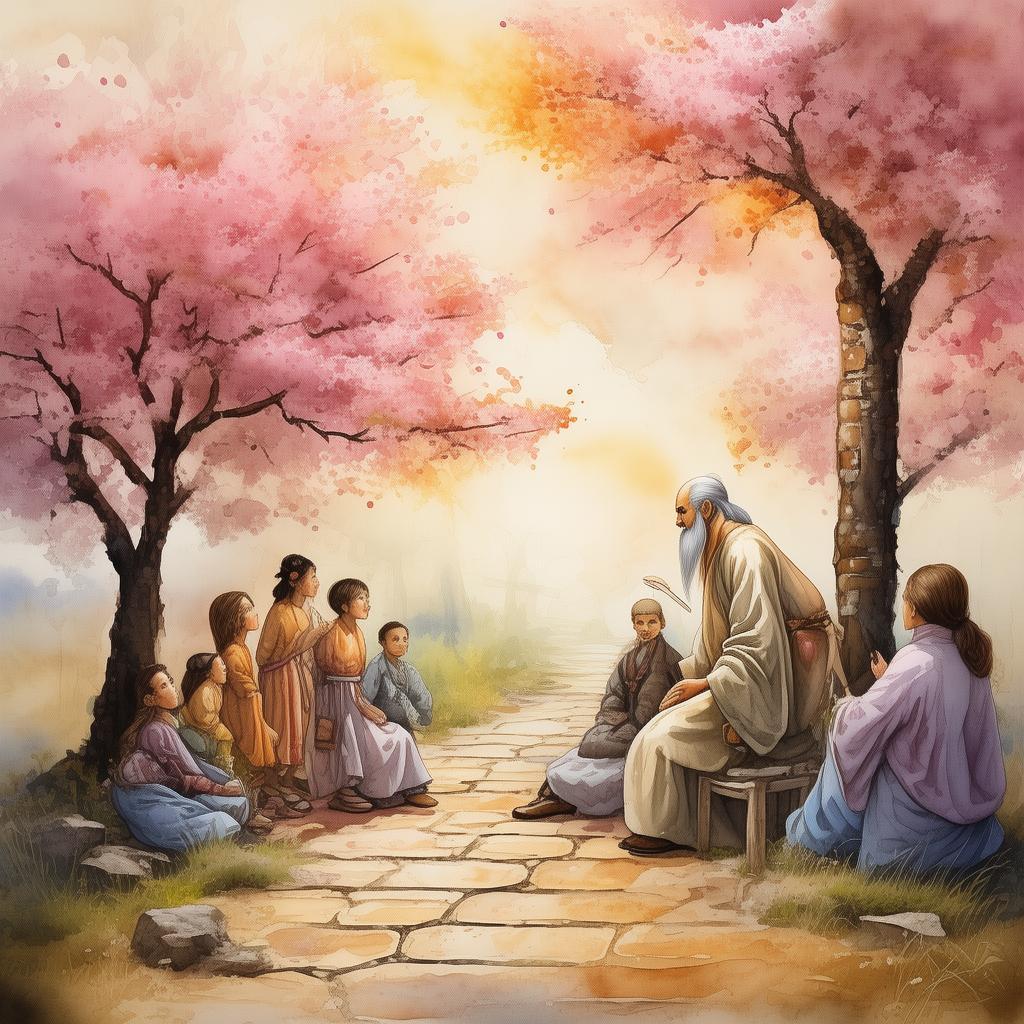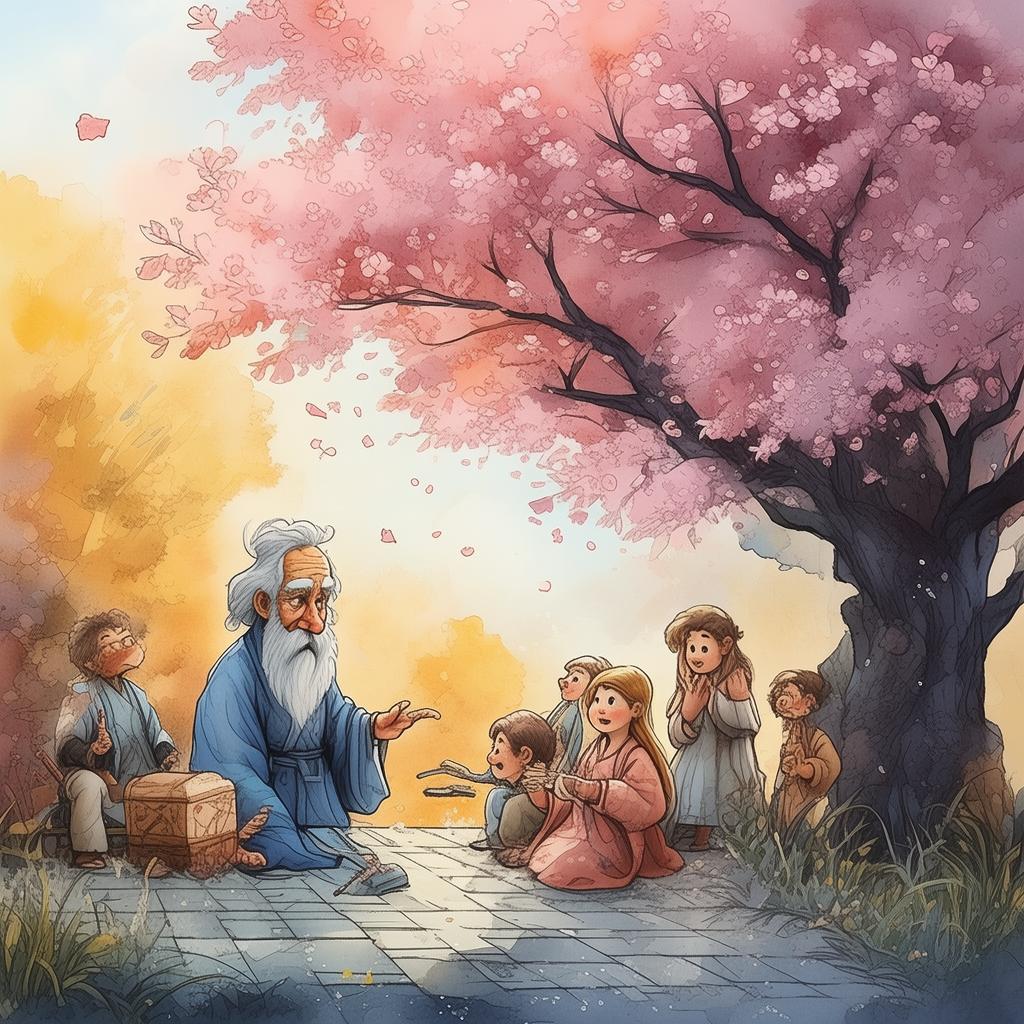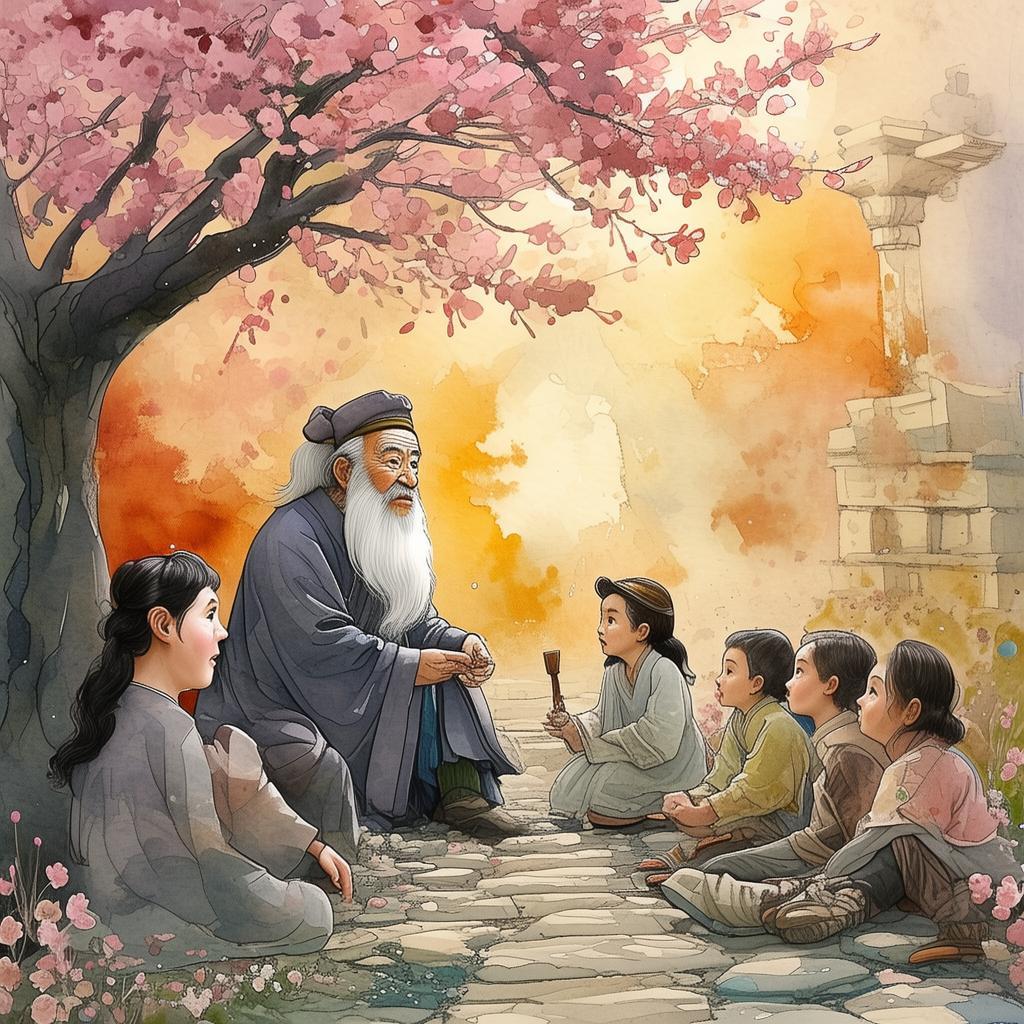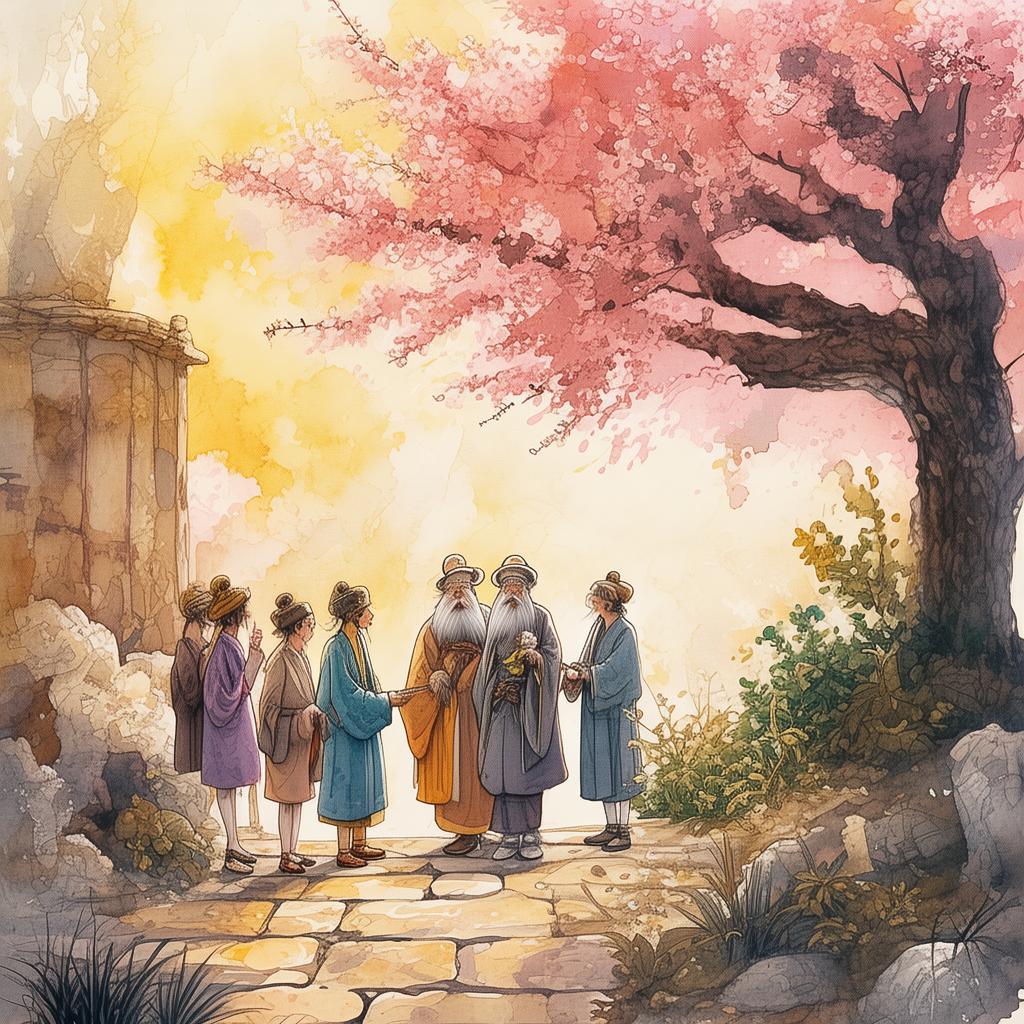Unveiling the Hebei Scholar's Dilemma
In the heart of ancient China, during the tumultuous Warring States period, there was a Hebei Scholar known for his wisdom and integrity. His name was Li Zongren, and he was a respected figure among his peers and the common folk. The Hebei region, known for its fertile land and strong cultural heritage, had become a battleground between the warring states of Qi, Zhao, and Yan.
Li Zongren lived in a small village nestled between these great powers, and his knowledge of history and literature was unparalleled. Despite the chaos around him, he was committed to the pursuit of knowledge and the betterment of his fellow villagers. His secret mission was to preserve the cultural legacy of Hebei and to ensure that the stories of his ancestors were not lost to time.
One evening, as the sun dipped below the horizon, casting long shadows across the village, Li Zongren received an unexpected visitor. It was a man named Xiang, a spy from the State of Qi. Xiang approached Li with a proposition that would change the course of his life. "The State of Qi seeks to unite the warring states under its rule," Xiang began. "We need someone of your caliber to help us achieve this. In return, we will protect your family and your village."
Li's heart raced with the weight of the proposal. On one hand, he knew that helping Qi could bring stability to his village and ensure the safety of his family. On the other hand, he was torn between his loyalty to his people and the moral dilemma of aiding a state known for its brutal conquests.
"Xiang, I am a scholar, not a soldier," Li replied cautiously. "I have no desire to be involved in the political machinations of the state."
Xiang, sensing the hesitation, pressed on. "But consider the alternative. Your family, your village, and the entire region are at risk of falling into the hands of a state that does not value the life of a single civilian."
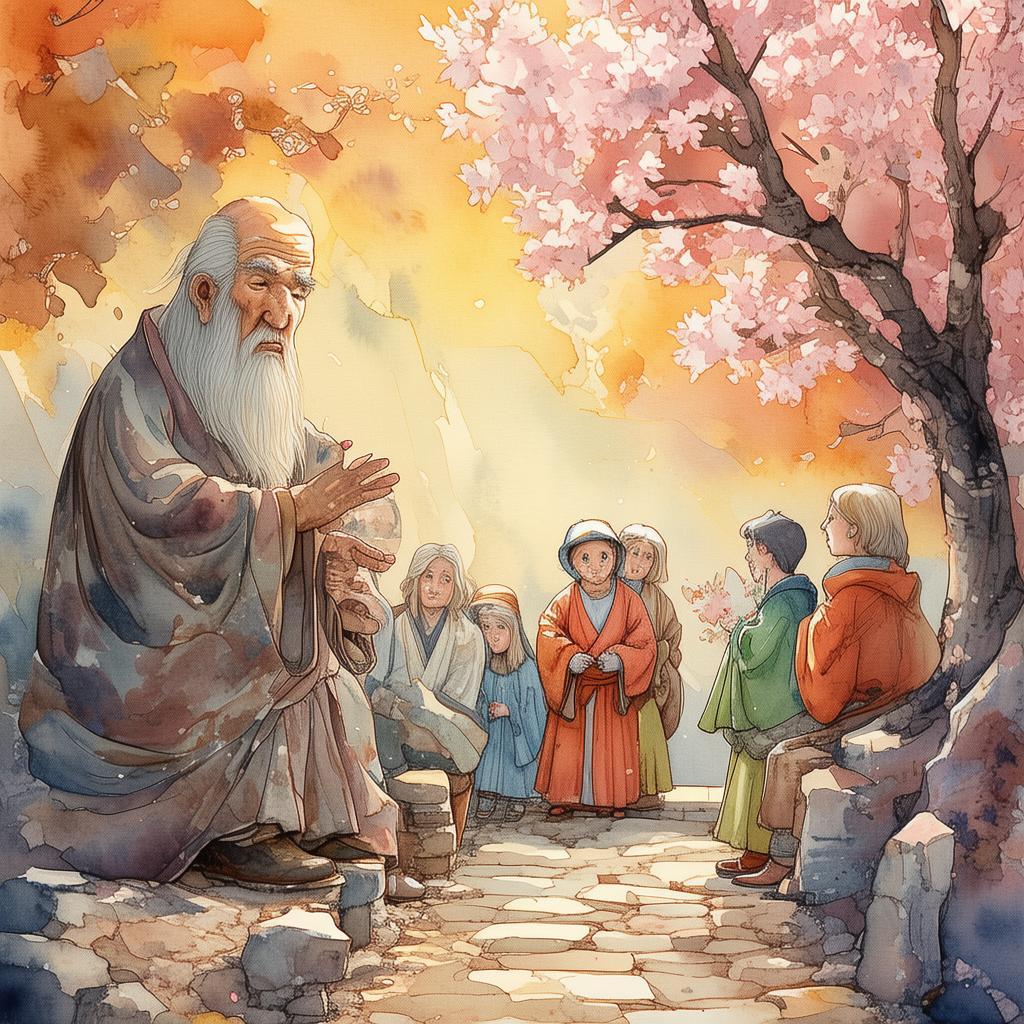
Li's thoughts were a whirlwind of contradictions. He knew that to refuse Xiang would likely lead to war and suffering for his people. Yet, to accept would mean betraying his own principles and possibly aiding in the subjugation of his neighbors.
As the days passed, Li grappled with his decision. He sought counsel from his closest friends and family, each offering different perspectives. His son, a young and idealistic scholar himself, argued that stability was more important than personal principles. "Father, we must think of the greater good," he pleaded. "The people need peace, and we can achieve it through the strength of Qi."
Li's wife, a woman of strong convictions, took a different stance. "We must not sacrifice our honor for temporary peace," she argued. "Our ancestors have fought for justice, and we must continue their legacy."
The Hebei Scholar was torn. He realized that the choice before him was not just personal; it was a test of his loyalty to his family, his village, and his heritage. In the end, Li decided that he could not betray his own principles, no matter the consequences.
He confronted Xiang and firmly declined the offer. "I cannot betray my people for the promise of safety," he declared. "The path of integrity is not an easy one, but it is the only path I can take."
Xiang was shocked by Li's decision. "You are a fool," he hissed, "to turn your back on the chance for a better life."
Li stood his ground, his eyes gleaming with determination. "I am not a fool, Xiang. I am a Hebei Scholar, and my duty is to uphold the values of my ancestors. Even if it means facing the wrath of the State of Qi."
Days turned into weeks, and the State of Qi's army began to encroach upon the Hebei region. The villagers, knowing of Li's decision, turned to him for guidance. "We stand with you, Master Li," they said. "We will not be swayed by the promises of the conquerors."
The Hebei Scholar, with his people by his side, faced the army of Qi. Despite being vastly outnumbered, the villagers, led by Li, fought with courage and determination. The battle was fierce, and many lives were lost, but the spirit of Hebei was not broken.
In the end, the State of Qi was forced to retreat, leaving the region relatively unscathed. The Hebei Scholar's courage and integrity had won the day, and the villagers were eternally grateful.
Li Zongren's legacy lived on in the hearts of the people, and the story of his moral dilemma became a cautionary tale for generations to come. The phrase "Hebei Scholar's Dilemma" was coined, symbolizing the eternal struggle between personal values and the pursuit of a greater good.
In the quiet of his study, surrounded by ancient scrolls and the whispers of his ancestors, Li Zongren found solace in his decision. He knew that he had chosen the harder path, but it was the one that was true to his heart and the legacy of his people.
The story of the Hebei Scholar's Dilemma became a part of the cultural fabric of China, a testament to the strength of character and the power of integrity in the face of adversity.
✨ Original Statement ✨
All articles published on this website (including but not limited to text, images, videos, and other content) are original or authorized for reposting and are protected by relevant laws. Without the explicit written permission of this website, no individual or organization may copy, modify, repost, or use the content for commercial purposes.
If you need to quote or cooperate, please contact this site for authorization. We reserve the right to pursue legal responsibility for any unauthorized use.
Hereby declared.
